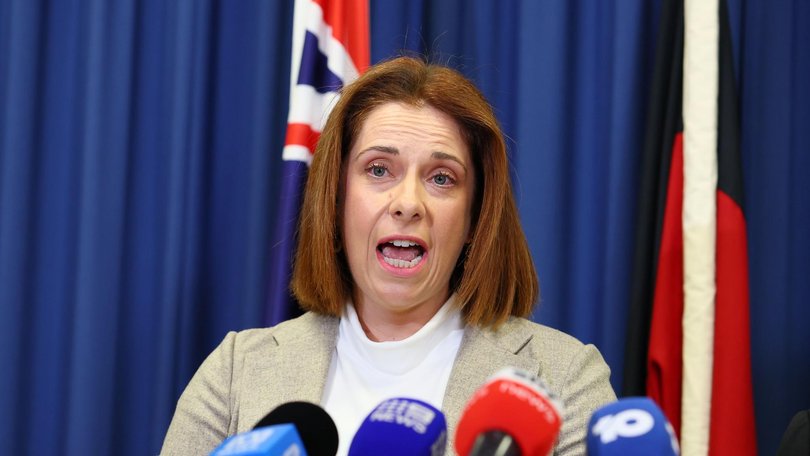AARON PATRICK: Optus CEO Stephen Rue should not be the only person considering resigning over Triple-0 deaths
AARON PATRICK: Chief executive Stephen Rue boasted of investing in the phone network to make it safe, secure and reliable. Its failure raises questions about whether he and the board should resign.
Two days before Optus chief executive Stephen Rue oversaw one of the worst cases of telecommunications failure in modern Australian history, he assured a group of wealthy investors and businesspeople that he considered himself personally responsible for operating a phone network that is safe, secure and reliable.
“The responsibility for security and security culture has to start, in my case with me,” he told a conference last Tuesday. “It has to be part of the board agenda. But if it isn’t, the CEO needs to make sure it is.”
Mr Rue will now be held to account for the deaths of three or four people unable to secure an ambulance last Thursday when the Optus Triple-0 service stopped operating in South Australia, the Northern Territory and Western Australia.
Sign up to The Nightly's newsletters.
Get the first look at the digital newspaper, curated daily stories and breaking headlines delivered to your inbox.
By continuing you agree to our Terms and Privacy Policy.On Monday morning even the Prime Minister speculated he might resign. “I’d be surprised if that wasn’t occurring,” Anthony Albanese said when asked if Mr Rue’s resignation was on the cards.
A News Corp accountant who ran the NBN before joining Optus last year, Mr Rue deserves an opportunity to explain to the families of those who died, Optus customers and the Government before judgment is passed on his culpability. But the evidence over the past four days raises serious questions about the company’s management in the wake of a similar scandal that cost Mr Rue’s predecessor her job.
Routine to deadly
Those questions go beyond the starting point of the internal and external investigations underway: how did a routine overnight security firewall update knock out an essential service that is meant to have a back-up operation built in?
Mr Rue, who boasted early last week he “always tried to have an open, transparent relationship with government and regulators”, will have to explain multiple communication failures that exacerbated a lethal mistake.
On Thursday morning when complaints started to come in about failed Triple-0 calls, they weren’t taken seriously. Optus staff could see nothing wrong with the Triple-0 system. The customers must be wrong, they concluded, rather than the computers.
Social scientists call this reaction confirmation bias. It’s a remarkably common cause of mistakes, from aircraft crashes to bad financial investments. One way to disrupt incorrect, self-interested interpretations is to receive contradictory information from a powerful source. In this case, it was the South Australian police who called at 1.50pm Thursday and notified Optus of the problem. Only then did Optus wake up.
Emergency procedures
Did the company institute the emergency procedures Mr Rue had boasted of rehearsing with his chief security officer, who was made a direct report to ensure crises would be quickly dealt with at a senior level?
Not exactly. Phone companies have a legal obligation to inform the Government and regulators of serious problems. The Australian Communications and Media Authority was told “more than 10 hours” after the problem was fixed, according to chair Nerida O’Loughlin.
Communications Minister Anika Wells was told on Thursday afternoon ten Triple-0 calls had not got through. The next morning the number had risen to 100 calls. Twenty minutes it had reached 624. Then she heard three people had died.

“People have a right to be livid about what happened here,” she said. “Optus has perpetuated an enormous failure upon Australians.”
News of the deaths was personally relayed to the government by Mr Rue not long before his Friday 5.30pm press conference. The late notification contributed to a perception Optus was trying to minimise adverse media coverage.
On Saturday, Optus blamed “a technical failure in the system”, an excuse useful because of its distance from human decision-making. On Sunday the story had changed. “Early investigations show that it appears that established processes were not followed,” Optus said. In other words: someone stuffed up.
Skimping investment?
Through selling mobile phone services to some 5 million Australians, Optus has become a wealthy company. Last financial year profits jumped 55 per cent to $446 million, helping drive parent Singapore Telecommunications’ market value to $85 billion.
Did the parent company, known as Singtel, skimp on investment to drive up its share price? That question will be part of the official investigation.
In 2023 the whole Optus phone network failed when several computers automatically disconnected during maintenance. The company was fined $12 million. Nobody died.
Mr Rue and his board were meant to ensure it never happened again. Operating on behalf of a foreign owner, the board is not independent. If new chairman John Arthur and the other directors are unable to protect their customers’ lives, it might be reasonable to ask if their resignations are appropriate too.
Rather than the decision being taken solely in Singapore, though, perhaps the relatives of the people who died might be asked who they consider should be held accountable.

